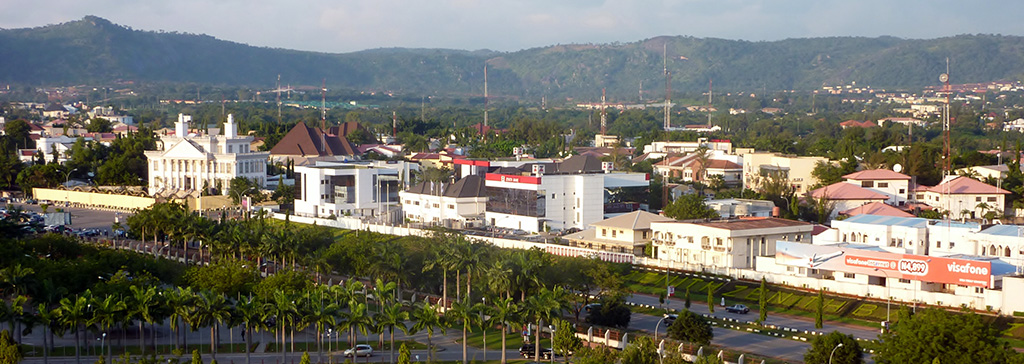Abuja has been the capital of Nigeria since 1991 and the name refers not only to the city itself but also to the Federal Capital Territory (FCT) in which it is located. The current Minister for the territory is Bala Abdulkadir Mohammed who was appointed on April 8, 2010. He is equivalent to a city mayor in that he is the chief administrative officer of the city and territory.
In 2006 Abuja had a population of 776,298 people. In some areas the population is growing at about 30 percent each year. The FCT occupies 2,824 square miles and the city is 1,180 feet above sea level. The FCT is bordered on the northeast by Kano state, to the east and south by Plateau state, southwest by Kogi state, and to the west and northwest by Niger state. The Benue and Niger Rivers, the two major rivers in the nation, are also close to the FCT. Abuja is located 300 miles northeast of Lagos, Nigeria’s former capital and still the nation’s largest city.
The capital was moved from Lagos to Abuja due to political divisions, geographical constraints, and ethnic tensions. Lagos, which was designated the capital shortly after the British established the unified colony of Nigeria in 1900, was situated in the southwestern corner of the nation in a region heavily dominated by Yoruba Christians. By the 1970s, Lagos, with well over four million people and built on multiple islands, had little land available for expansion. Also, Muslim political leaders who dominated the national government, wanted a capital closer to their center of influence, the heavily Islamic North.
Abuja was chosen because of its centralized location, less humid climate, and because as a new, planned city it would have the opportunity to experience an orderly expansion. It was also viewed as a neutral site on the cultural, religious, and political border between the mostly Christian South and the Muslim North.
Authorization for the new capital first came on February 14, 1976. The Federal Capital Development Authority, which oversaw the project, decreed that Abuja would be developed in four phases. Construction began on the first phase in 1977. By 2014, however, only two phases, the central business district and one of the major residential districts, have been completed. Nonetheless the city was opened for occupancy in 1991.
Abuja’s population includes over 250 ethnic groups from almost every corner of Nigeria. While English is the official language, other languages are spoken as well including Yoruba, Ibo, and Hausa. About half the FCT residents are Muslims, and Christians make up another 40%. Abuja has both the golden domed National Mosque that dominates the city’s skyline and the Nigerian National Christian Center, one of the largest Christian churches in the nation. The city’s largest park, 80 acre Millennium Park, was opened by Queen Elizabeth II of Great Britain on December 4, 2003.

